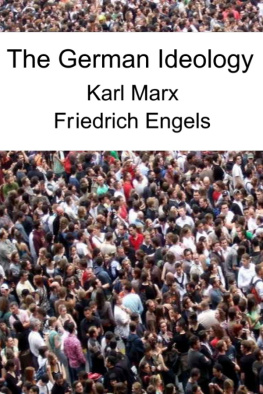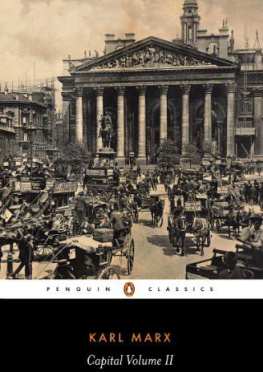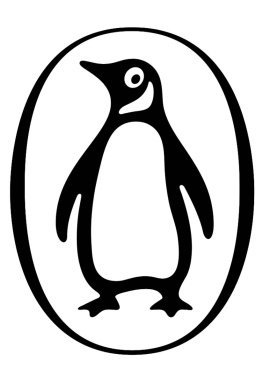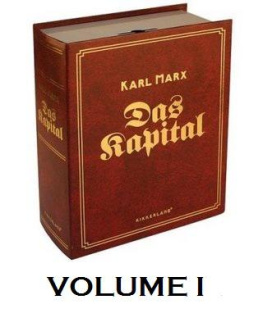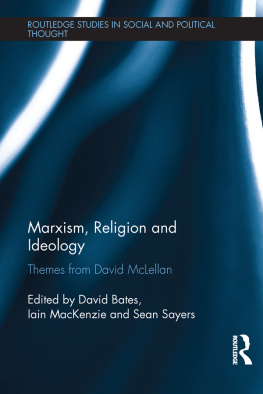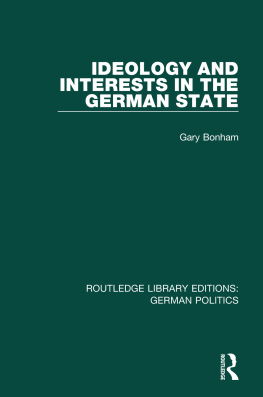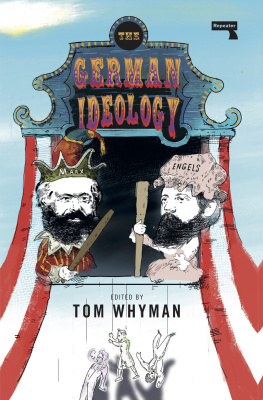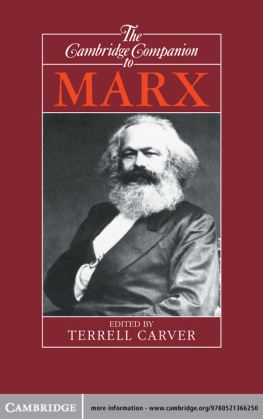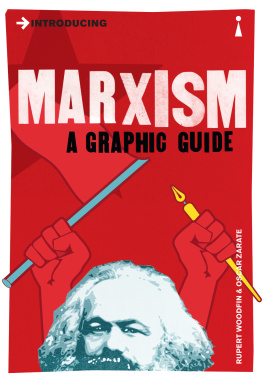Karl Marx - The German Ideology
Here you can read online Karl Marx - The German Ideology full text of the book (entire story) in english for free. Download pdf and epub, get meaning, cover and reviews about this ebook. year: 1846, publisher: Amazon Media EU S.Г r.l., genre: Science. Description of the work, (preface) as well as reviews are available. Best literature library LitArk.com created for fans of good reading and offers a wide selection of genres:
Romance novel
Science fiction
Adventure
Detective
Science
History
Home and family
Prose
Art
Politics
Computer
Non-fiction
Religion
Business
Children
Humor
Choose a favorite category and find really read worthwhile books. Enjoy immersion in the world of imagination, feel the emotions of the characters or learn something new for yourself, make an fascinating discovery.
- Book:The German Ideology
- Author:
- Publisher:Amazon Media EU S.Г r.l.
- Genre:
- Year:1846
- Rating:5 / 5
- Favourites:Add to favourites
- Your mark:
- 100
- 1
- 2
- 3
- 4
- 5
The German Ideology: summary, description and annotation
We offer to read an annotation, description, summary or preface (depends on what the author of the book "The German Ideology" wrote himself). If you haven't found the necessary information about the book — write in the comments, we will try to find it.
The German Ideology — read online for free the complete book (whole text) full work
Below is the text of the book, divided by pages. System saving the place of the last page read, allows you to conveniently read the book "The German Ideology" online for free, without having to search again every time where you left off. Put a bookmark, and you can go to the page where you finished reading at any time.
Font size:
Interval:
Bookmark:
Edited by James Caulfield
Cover photo by James Cridland
The German Ideology is one of the least known yet one of the most powerful colloborations between Marx and Engels. It presents a Marxist theory of history and how history has unfolded. It is a mighty work, yet one that was not published in Marx's own lifetime.
Presented here is an excerpt translated into English of the more than 500 pages of the original text.
Throughout the text Marx and Engels argue that it is the material conditions of real life should be front and centre of how we think about history, society and the state. For the authors, the 'end of history' as they conceived it can bring humanity the end of exploitation and the true realisiation of the ideals of the Enlightenment.
James Caulfield June 2016
Hitherto men have constantly made up for themselves false conceptions about themselves, about what they are and what they ought to be. They have arranged their relationships according to their ideas of God, of normal man, etc. The phantoms of their brains have got out of their hands. They, the creators, have bowed down before their creations.
Let us liberate them from the chimeras, the ideas, dogmas, imaginary beings under the yoke of which they are pining away. Let us revolt against the rule of thoughts. Let us teach men, says one, to exchange these imaginations for thoughts which correspond to the essence of man; says the second, to take up a critical attitude to them; says the third, to knock them out of their heads; and... existing reality will collapse.
These innocent and childlike fancies are the kernel of the modern Young-Hegelian philosophy, which not only is received by the German public with horror and awe, but is announced by our philosophic heroes with the solemn consciousness of its cataclysmic dangerousness and criminal ruthlessness. The first volume of the present publication has the aim of uncloaking these sheep, who take themselves and are taken for wolves; of showing how their bleating merely imitates in a philosophic form the conceptions of the German middle class; how the boasting of these philosophic commentators only mirrors the wretchedness of the real conditions in Germany. It is its aim to debunk and discredit the philosophic struggle with the shadows of reality, which appeals to the dreamy and muddled German nation.
Once upon a time a valiant fellow had the idea that men were drowned in water only because they were possessed with the idea of gravity. If they were to knock this notion out of their heads, say by stating it to be a superstition, a religious concept, they would be sublimely proof against any danger from water. His whole life long he fought against the illusion of gravity, of whose harmful results all statistic brought him new and manifold evidence. This valiant fellow was the type of the new revolutionary philosophers in Germany.
As we hear from German ideologists, Germany has in the last few years gone through an unparalleled revolution. The decomposition of the Hegelian philosophy, which began with Strauss, has developed into a universal ferment into which al the powers of the past are swept. In the general chaos mighty empires have arisen only to meet with immediate doom, heroes have emerged momentarily only to be hurled back into obscurity by bolder and stronger rivals.
It was a revolution beside which the French Revolution was childs play, a world struggle beside which the struggles of the Diadochi [successors of Alexander the Great] appear insignificant. Principles ousted one another, heroes of the mind overthrew each other with unheard-of rapidity, and in the three years 1842-45 more of the past was swept away in Germany than at other times in three centuries. All this is supposed to have taken place in the realm of pure thought.
Certainly it is an interesting event we are dealing with: the putrescence of the absolute spirit. When the last spark of its life had failed, the various components of this caput mortuum began to decompose, entered into new combinations and formed new substances. The industrialists of philosophy, who till then had lived on the exploitation of the absolute spirit, now seized upon the new combinations. Each with al possible zeal set about retailing his apportioned share. This naturally gave rise to competition, which, to start with, was carried on in moderately staid bourgeois fashion.
Later when the German market was glutted, and the commodity in spite of all efforts found no response in the world market, the business was spoiled in the usual German manner by fabricated and fictitious production, deterioration in quality, adulteration of the raw materials, falsification of labels, fictitious purchases, bill-jobbing and a credit system devoid of any real basis. The competition turned into a bitter struggle, which is now being extolled and interpreted to us as a revolution of world significance, the begetter of the most prodigious results and achievements.
If we wish to rate at its true value this philosophic charlatanry, which awakens even in the breast of the honest German citizen a glow of national pride, if we wish to bring out clearly the pettiness, the parochial narrowness of this whole Young-Hegelian movement and in particular the tragicomic contrast between the illusions of these heroes about their achievements and the actual achievements themselves, we must look at the whole spectacle from a standpoint beyond the frontiers of Germany.
We preface therefore the specific criticism of individual representatives of this movement with a few general observations, elucidating the ideological premises common to all of them. These remarks will suffice to indicate the standpoint of our criticism insofar as it is required for the understanding and the motivation of the subsequent individual criticisms. We oppose these remarks to Feuerbach in particular because he is the only one who has at least made some progress and whose works can be examined de bonne foi.
We know only a single science, the science of history. One can look at history from two sides and divide it into the history of nature and the history of men. The two sides are, however, inseparable; the history of nature and the history of men are dependent on each other so long as men exist. The history of nature, called natural science, does not concern us here; but we will have to examine the history of men, since almost the whole ideology amounts either to a distorted conception of this history or to a complete abstraction from it. Ideology is itself only one of the aspects of this history.
German criticism has, right up to its latest efforts, never quitted the realm of philosophy. Far from examining its general philosophic premises, the whole body of its inquiries has actually sprung from the soil of a definite philosophical system, that of Hegel. Not only in their answers but in their very questions there was a mystification. This dependence on Hegel is the reason why not one of these modern critics has even attempted a comprehensive criticism of the Hegelian system, however much each professes to have advanced beyond Hegel.
Their polemics against Hegel and against one another are confined to this each extracts one side of the Hegelian system and turns this against the whole system as well as against the sides extracted by the others. To begin with they extracted pure unfalsified Hegelian categories such as substance and self-consciousness, later they desecrated these categories with more secular names such as species the Unique, Man, etc.
The entire body of German philosophical criticism from Strauss to Stirner is confined to criticism of religious conceptions, claiming to be the absolute redeemer of the world from all evil. Religion was continually regarded and treated as the archenemy, as the ultimate cause of all relations repugnant to these philosophers. The critics started from real religion and actual theology. What religious consciousness and a religious conception really meant was determined variously as they went along.
Font size:
Interval:
Bookmark:
Similar books «The German Ideology»
Look at similar books to The German Ideology. We have selected literature similar in name and meaning in the hope of providing readers with more options to find new, interesting, not yet read works.
Discussion, reviews of the book The German Ideology and just readers' own opinions. Leave your comments, write what you think about the work, its meaning or the main characters. Specify what exactly you liked and what you didn't like, and why you think so.

